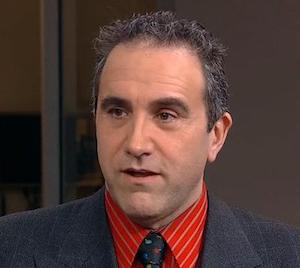Here’s the problem.
First, we have the science.
Then, we have the activists who want to use the science to justify various programs to solve the problem.
Then we have the political ideologues who want to use the activist’s plans to advance a political agenda.
The climate debate has been completely muddied by political ideologues and partisans on both sides of the debate, and is no longer strictly about the science.
Let me ask you - where are the climate change activists who are proposing a solution that involves smaller government? Where are the activists whose solutions involve a wholesale switch to nuclear power? Where are the activists who are willing to consider that perhaps the best strategy is damage mitigation instead of upfront taxes and larger government?
Instead, we have people using climate change science to promote ‘green jobs’, which, when you scratch the surface are nothing more than wealth transfer schemes to their favored constituency. You have people who want to set up global carbon tax schemes where the real goal is to extract as much money from the wealthy countries and the wealthy individuals in those countries, and spread it around. You have climate change activists using their ideology to justify a whole range of interventions in the economy that happen to give power to the people they like.
We all gravitate to scientific studies that support the types of policies we already want. I can guarantee you that if a scientific study came out tomorrow that showed conclusively that countries with large governments caused more pollution, and that the solution was to gradually scale back government over 50 years, you’d get a hell of a lot of activists that accept climate change science completely denying the new findings.
We see that all the time. Paul Krugman (excuse me, the revered Dr. Krugman) is hailed as the patron saint of economic science whose word carries the weight of a Nobel Prize and therefore must not be questioned. Nobel winners on the other side? Partisan hacks, all.
For thirty years, scientists and engineers have been trying to tamp down anti-nuclear hysteria. The same people who tell us to ‘follow the science’ today would hear nothing of it. Instead, they glommed on to every disaster tale, conspiracy theory, and half-baked pseudo-scientific scaremongering they could get their hands on to justify their positions.
So tell me - where does that leave someone who believes the science is fundamentally correct, but who believes that the debate is so poisoned by political ideology that accepting the science gives weight to those people who are ready to use it in nonscientific ways to push an agenda that is destructive economically and destructive to human freedom?
I can tell you where it leaves you - it leaves you somewhat apathetic. You may accept the science, but you don’t think the science is the real issue. So you attempt to debate what you think are the flaws in the implementation, and you get labeled a ‘denier’. If you accept the science but don’t argue the flaws in the implementation, you give your tacit approval to measures that you think are horribly wrong.
So, you learn to tap-dance a little. You concede the science only in the context of also warning that the proposed solutions are flawed.
This was the position Bjorn Lomborg was in. He was never a climate change denier. He accepted the science, and agreed that it was a big problem. His issues were that the proposed solutions were too expensive and weren’t going to work. He felt that when you consider the net-present value of future warming, the cost of real mitigation was perhaps too high, and the money could be better spent fixing the planet here and now. For instance, by helping Africa get on its feet so it would be economically stronger and better able to withstand the effects of climate change when it happened.
For that, he was savaged by the movement, mischaracterized, misquoted, and dismissed.
In addition, and getting back to the hard science, we have the problem that some of the leading scientists have behaved in an unscientific manner and have poisoned the well. It make it hard to trust them. And when they make statements like ‘the science is settled’, which is a profoundly anti-scientific thing to say, it makes you question their objectivity.
So, like Maeglin’s admission of being more willing to take opponents to task for false statements rather than political fellow travelers, I think it’s natural for people to be more willing to focus on the errors of the side that is trying to do things they disagree with more so than those who fundamentally want to take the same course of action, even if their starting premise is false.
All that said, if you go back and look at the climate debates, you’ll find more than once when I have criticized people on ‘my’ side whose statements went too far. And I have on several occasions tried to start threads that concede the science as a condition of the thread, and have tried to limit it to the range of possible responses.
Those threads generally ended badly, because on the right of me there are people not willing to concede the science, and on the left there are people who like keeping the argument on the science, because that’s where they are strongest. They know that once we move away from the core science and into the fuzzier world of politics, economics, forecasting, discount rates, foreign relations, and all the other issues that crop up, a lot of their arguments are just hot air.

